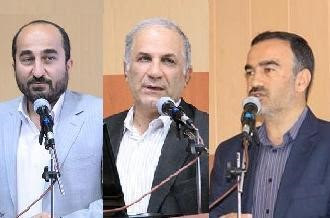Rafsanjani's trip down memory lane
Redline HQ has noted that, hot on the heels of the recent IAEA report, Iranian regime heavyweight and pistachio billionaire Akbar Hashemi Rafsanjani (اکبر هاشمی رفسنجانی) has also been in the news after giving a tell-all interview about the early days of Iran's nuclear programme. Rafsanjani was Iran's president from 1989 to 1997 - exactly the period that the country's endeavours in uranium enrichment, heavy water and weapons research really kicked off.
You can read the interview in its entirety here.
A couple of his admissions from the interview have already made headlines Surprising nobody, Rafsanjani admitted that Iran's nuclear program was established with one eye on it as a potential deterrent. "Our basic doctrine was always a peaceful nuclear application," he says, "but it never left our mind that if one day we should be threatened and it was imperative, we should be able to go down the other path."
Also grabbing media attention was Rafsanjani's admission that Iran got centrifuge technology from Pakistan's AQ Khan (عبدالقديرخان) - good to hear, but something that Iran confessed to the IAEA about ten years ago.
So no great surprises on those fronts. But there were some more interesting information buried in the interview. Here's what Redline learned...
1) Iran tried to buy fissile material from smugglers.
Rafsanjani says that Iran was repeatedly offered black-market fissile material, which it considered buying - including weapon-grade uranium enriched to 90 percent - but the sellers were always bogus. (Thank goodness).
2) Iran planned to build an underground heavy water reactor in the mountains near Qazvin (قزوین).
It's long been alleged that Iran planned on building some sort of nuclear facility at a site near Qazvin called Mo'allem Kalayeh (معلم کلایه), also known as Alamut (الموت). Various sources have reported that Iran signed an agreement with India in 1991 to build a 10MW research reactor there, but that deal apparently fell through.
In 1992, spurred by those reports, the IAEA visited Moallem Kalayeh, and found a "motel-size" retreat where nuclear scientists travelled for language training and recreation. It's a pity they couldn't have waited a bit longer, because if Iran's plans for the site had gone uninterrupted, the IAEA might have got to visit something like this:
As Rafsanjani says, not only was Iran was going to build a heavy water reactor at Alamut, but they were going to do it UNDERGROUND. Mental. Although not completely unheard of - Sweden has one!
3) Nuclear cooperation with North Korea never went far.
Rafsanjani admits that Iran's quest to get foreign nuclear assistance led them not just to AQ Khan, but also to North Korea. However, Rafsanjani says that North Korea "gave us their suggestions, but cooperation never reached the operational stage." China proved a far more willing partner, Rafsanjani says, supplying Iran with plans for its uranium conversion facility for a cool $60 million.
4) Iran might have got more centrifuges from Pakistan than it's told the IAEA.
Rafsanjani says that AQ Khan supplied Iran with 4,000 "first-generation" (P-1) centrifuges. Iran has previously told the IAEA that it received components for only 2,000 centrifuges from the Khan network.
Oops. No doubt the IAEA will be keen to ask Iran about this apparent discrepancy...
All in all, a nice trip down memory lane from Old Man Rafsanjani! Redline is looking forward to Volume II where he talks about the early days of the Physics Research Centre and gives us some thoughts on SPND.










Comments
Post a Comment